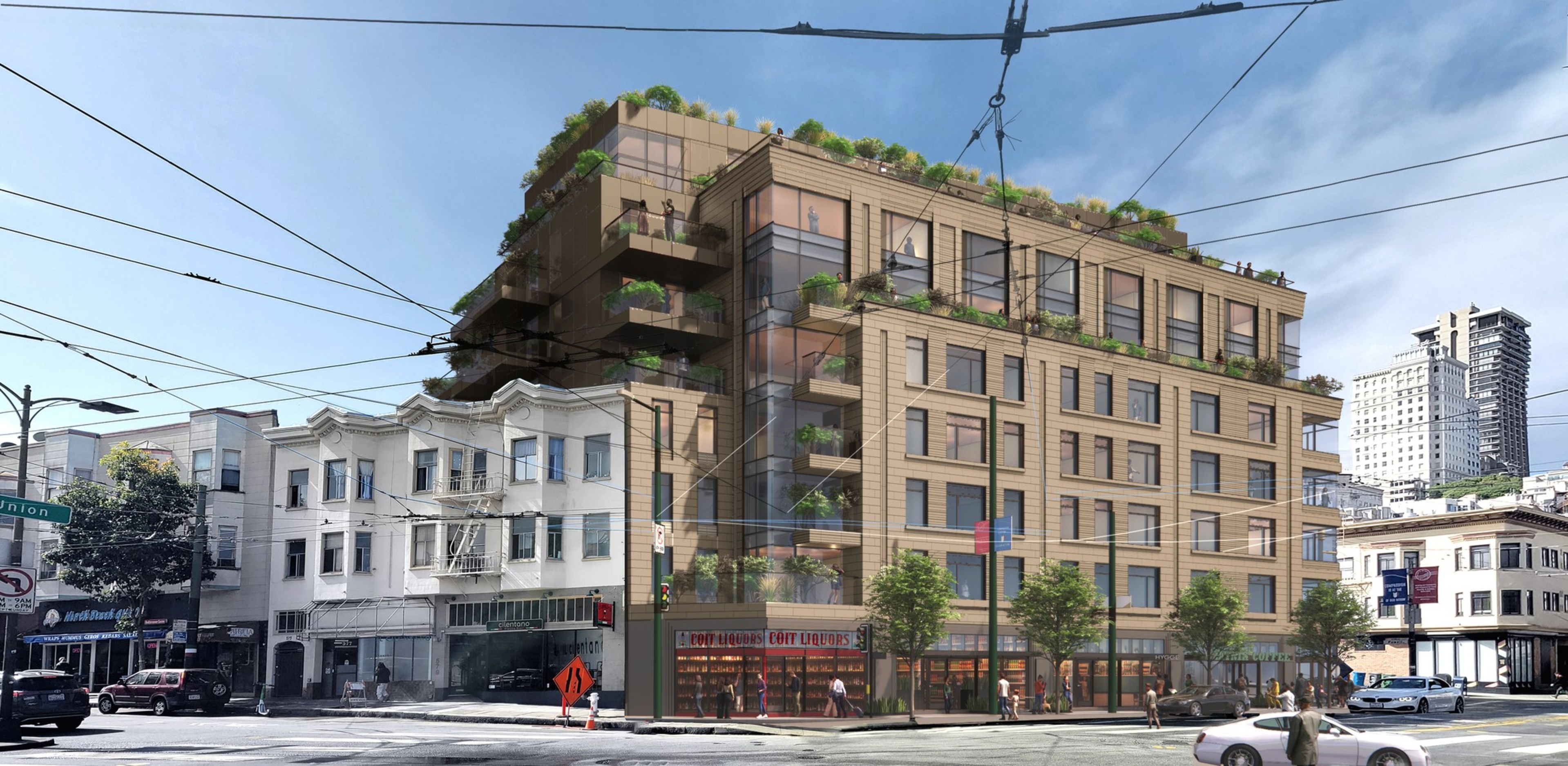Since acquiring a prime piece of North Beach real estate eight years ago, Jeff Jurow and his partners have been trying to redevelop the property.
It should have been an easy sell. The century-old Verdi Building at 659 Union St. is on a bustling corner across the street from Washington Square Park. But it has been a crumbling, burned-out husk since catching fire in 2013 and again in 2018 — a source of embarrassment in the heart of one of the city’s most desirable neighborhoods.
A combination of zoning restrictions, NIMBY spoilsports, and high costs has stopped its transformation into anything useful. So there the brick shell has sat, propped up by metal rods, scorned by neighbors.
Now, Jurow’s group, rather than sitting through months of hearings about historic preservation requirements, is trying to leverage state laws to overrule local authority and build higher.
“It’s been a bureaucratic root canal trying to get this site redeveloped,” Jurow said. “We’re looking forward to working with the mayor and Supervisor [Danny] Sauter on a workable path to building new housing in North Beach.”
According to a preliminary application submitted to the city’s Planning Department last week, Jurow’s latest proposal involves demolishing a parking garage on the lot, plus the facade of the Verdi Building, to make way for an eight-story apartment building with 89 units, 5,700 square feet of ground-floor retail, and one of North Beach’s only rooftop restaurants. That would more than triple the 23 units in the original housing plan and nearly double the height of Jurow’s earlier proposal.
To qualify for state streamlining laws and density bonuses, 15 of the planned units would be set aside for people earning between 50% and 120% of the area’s average median income.

The latest application aims to leverage Senate Bill 330 to prevent the city from downzoning, increasing fees, or imposing new standards on the project after the application submission date. The law, known as the Housing Crisis Act, was passed in 2019 and applies to any housing proposal of five or more units.
SB 330 is meant to give developers like Jurow predictability in planning and budgeting, as it stops local governments from changing the rules midstream. Concurrent to Jurow’s redevelopment effort, a preservationist group in North Beach has been trying to designate the vast majority of the neighborhood as historic (opens in new tab) in order to restrict the height and design of new developments.
When an area is deemed a historic district, any proposed demolition requires an environmental review, plus special approval from the Planning Commission, San Francisco Historic Preservation Commission, and, if appealed, the Board of Supervisors.
The effort to designate North Beach as a historic district was launched last year by architectural historian Katherine Petrin on behalf of a group of preservationists (opens in new tab) allied with the Telegraph Hill Dwellers. The request needs to be heard by a state commission and, if approved, would need to be voted on by property owners in the proposed district. Petrin’s hearing before the state commission has been delayed (opens in new tab) until at least 2026 due to questions about a lack of notice to neighbors.
On top of SB 330, Jurow’s group says it intends to utilize automatic approvals under SB 423 — usually around environmental review and special hearings — if it meets preexisting standards outlined in the law and affordability requirements. SB 423 applies to San Francisco and other cities that are behind on their state-mandated housing targets.
Two fires, five years apart, gutted the Verdi Building. The first displaced 32 tenants who had rent-control protections, many of whom want their units in the building back (opens in new tab). The second fire displaced a liquor store.
Jurow previously told The Standard that preserving the brick facade would amount to making “a building within a building” and would add $20 million in costs and up to a year to construction — a dealbreaker for him and his investors.
An entity tied to his firm, Red Bridge Partners, purchased the property from a family trust in 2017 for more than $2 million.
The new building application needs to be approved by the Planning Department before construction can start.
“Just as anyone else, the owners of this site don’t want to see it in its current condition,” Jurow said. “We are eager to get rid of this eyesore.”
